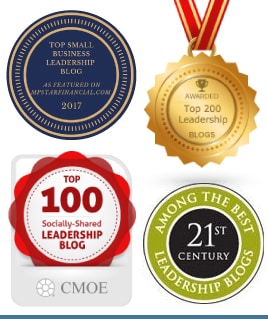September 19 marked an absolute doozy for the South African rugby team.
The Springboks, World Cup favourites, got trounced by underdogs, Japan, in the first round of the Rugby World Cup. For the Springbok coach, Heyneke Meyer, his three “sleepless nights” following the humiliating defeat are testament to the kind of pressure felt by international sports teams, who have the weight of their nation’s expectations firmly on their shoulders.
Then something really cool happened.
All Blacks coach, Steve Hansen, sent Meyer a supportive text message about the defeat. Meyer has since spoken about the impact that short text had on lifting his spirits.
The moment Hansen decided to send his counterpart that short but powerful text, he demonstrated a pivotal trait in successful leadership. Empathy.
The ability to identify with, understand and share another person’s feelings and emotions, is widely becoming recognised as one of the stellar traits for any leader today.
The business environment’s general discomfort with “touchy feely” concepts, such as empathy, emotions and compassion, is a shame. This outdated view of “soft skills” still holds back too many organisations and leaders from unleashing their potential.
Empathy is one of the critical components in relationship building and trust.
Try and lead effectively without those two things and tell me how you get on.
For the skeptics out there who still believe leadership is predominantly about intelligence, strategic agility, analytical and technical skills, here’s some research on the subject to challenge your paradigm.
Internationally known psychologist and New York Times Bestselling author of the book Emotional Intelligence, Daniel Goleman, has been instrumental in bringing empathy front and centre stage in the leadership debate.
His take on empathy?
“Leaders with empathy do more than sympathize with people around them: they use their knowledge to improve their companies in subtle, but important ways,” Goleman says.
Empathy is not about agreeing with everyone’s view or becoming an obsequious people pleaser. It’s about “thoughtfully consider(ing) employees’ feelings – along with other factors – in the process of making intelligent decisions.”
[Tweet ” “Empathy is not about agreeing with everyone’s view or becoming an obsequious people pleaser”]
So how do you cultivate empathy?
Here are 5 ways for leaders to become more empathetic:
- Listen. Deeply and actively. See here and here for why this is important for leaders. Listen with all your senses, not just to the words that are being spoken by another. Reserve judgement for as long as you can. Don’t interrupt. Stop that internal story in your head and just tune into what the other person is saying. Paraphrase to check your assumptions.
[Tweet “Becoming a better listener develops empathy like nothing else.”]
- Be curious. Cultivate curiosity about people, especially those who are very different from you (or even your enemies or competitors). Non-judgmental inquisitiveness about the world in which we live in is something children do naturally. Take a leaf out of their book and seek to understand people more deeply. That new customer service representative in telemarketing? What have you done to get to know them beyond merely a surface level?
- Be vulnerable. Ditch the Leader as Superhero archetype. Get comfortable with not knowing. When the moment dictates, share your mistakes, failures and own continuing journey to becoming a better leader (and person).
- Work on your self awareness. Socrates had it nailed when he said “Know Thyself”. Understand why you have the view of the world that you do and what influences have shaped this view. Know your own back story, where you have come from, where you get tripped up, your own triggers and conversely what lights you up.
- Put yourself in the other person’s shoes. This seems searingly obvious, but consciously focusing on doing this when the other person begins to share helps to develop empathy. Focus on the feelings and situations that you have experienced in the past that are similar. This will deepen your emotional insight into the other person’s perspective.
My favourite description of empathy is “your pain in my heart.” Hansen embodied this when he sent that text. He recognised that on the field, the job of the All Blacks is to crush the Springboks. He recognised that off the field, his job was to tune into the devastating defeat his competitor coach was experiencing.
Hansen’s ability to get alongside his fellow human being in his time of need is an awesome display of this powerful leadership trait – and one we can all learn from.




